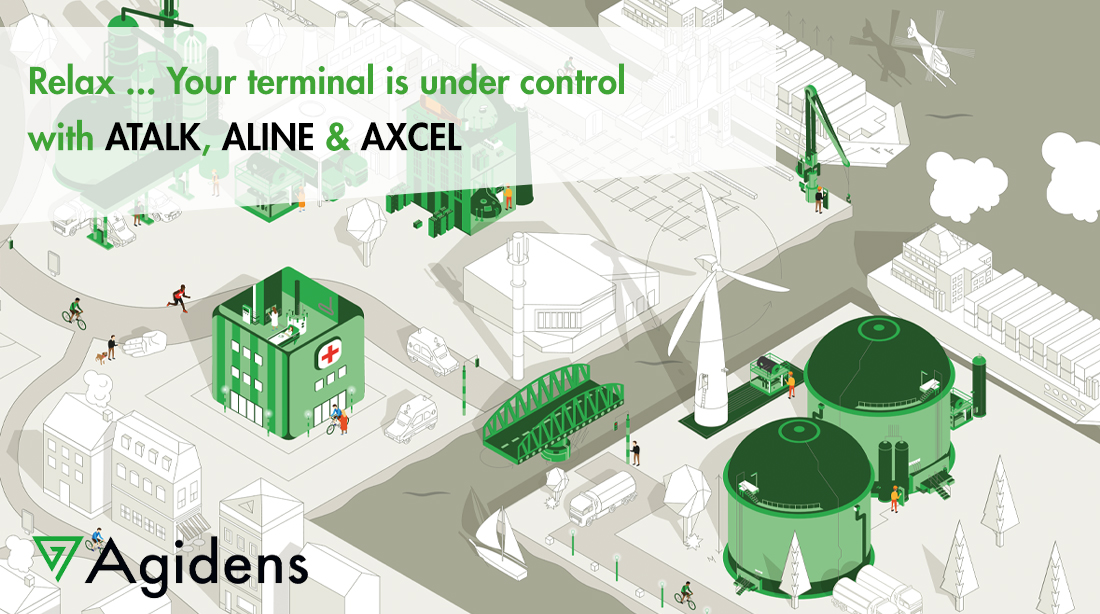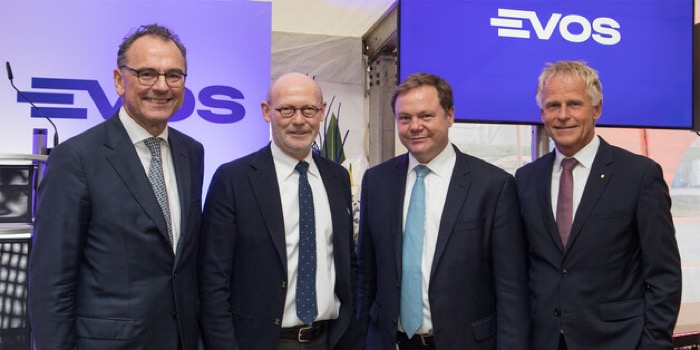Evos Hamburg has showcased itself to 250 guests at its New Year reception. After being sold to First State Investments, the company has emerged from Vopak Dupeg Terminal, the German subsidiary of the Dutch Royal Vopak group, with its headquarters in Rotterdam.
Evos Hamburg operates 149 tanks with a storage capacity of 670,000 cubic metres, as well as comprehensive infrastructure for loading and unloading ships, trains and trucks to supply Hamburg metropolitan region and the German hinterland, as well as its direct pipelines to adjacent industrial plants.
Significant role in supplying North-Western Europe with liquid products
Evos has a customer portfolio ranging from all major oil and chemical companies, plus mid-sized firms down to smaller local businesses with local production sites. Moreover, Evos Hamburg operates storage facilities, used for the import of necessary raw materials and oil products that are not produced in adequate quantities in Germany (e.g. diesel), as well as for the export of German products to other markets outside Germany. Evos Hamburg has a significant share in supplying the German market with heating oil, gasoil and diesel, as well as other oil products and supplying the major European production sites for industrial lubricants in Hamburg. In addition, Evos Hamburg provides fuel supplies for a lion’s share of ships in the Port of Hamburg.
Just as before, as the German subsidiary of the Dutch company Royal Vopak, Evos Hamburg remains a company firmly anchored locally in the Port of Hamburg, but at the same time with diverse international connections, stressed CEO Jos Steemann. Overall, liquid products represent 10 percent of the total throughput in the port of Hamburg.
Over the last five years, almost 130 million euros have been invested in the Evos Hamburg Terminal. The new owners, too, have significant growth plans for the future.
Role of tank farm industry in energy revolution
Evos Hamburg has made sustainability and increasing climate neutrality into a fundamental concept of its business strategy, with tank farm operations becoming increasingly low-emission and consequently climate-friendlier.
Going forward, liquid products will play an important role in climate-friendly energy and fuel supplies, e.g. as LNG, synthetic fuel, or as green hydrogen. They represent an important component in the energy revolution, since transition to e-mobility will not be feasible for all modes of transport. This includes shipping, trucking and aviation. Liquid products, such as fossil and non-fossil LNG, synthetic fuels and bio-fuels, will increasingly replace conventional fossil fuels.
Taking realistic estimates into account, this process will play out over the coming decades, with the transformation processes in some sectors being faster than others. Shipping is already starting to refit today using LNG – as a response to the increasingly tightened international air pollutant regulations (IMO 2020) that are making the transition to low-sulphur fuels necessary. The development of international LNG bunker infrastructure has intensified. At the same time, air transport will still need decades till the necessary quantities of synthetic kerosene are available at competitive prices.
Today, it is already foreseeable that in the future climate-neutral liquid products, such as LNG, synthetic fuels and green hydrogen, will be increasingly stored. This makes tank farm operators a significant stakeholder and player in all questions relating to sustainable, climate-friendly transition and development of a non-fossil energy supply. Since, without the appropriate infrastructure this transition and development will not succeed.
For more information visit www.hafen-hamburg.de















